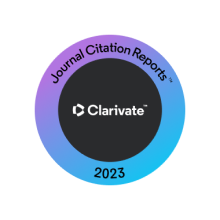Abstract
Objectives: Anthracyclines used in the treatment of breast cancer are known for their cumulative cardiotoxic effect. Two-dimensional speckle tracking echocardiography is a promising technique in detection of subclinical cardiotoxicity. Cardio-oncology rehabilitation is a new field aiming to decrease the risk of cardiovascular diseases and improve cardiopulmonary fitness among cancer patients
Methods: The study included 100 female patients with de novo breast cancer and treated with anthracycline-based chemotherapy. Patients were randomly assigned into two groups in a 1:1 ratio. Group (1) included patients who were allocated to cardiac rehabilitation program in addition to their regular chemotherapeutic drugs and group 2 included patients who received chemotherapy only. Standard 2-dimensional echocardiography and 2-dimensional speckle tracking echocardiography for assessment of left ventricle global longitudinal strain were performed to all patients before receiving the chemotherapy and at 3 and 6 months after.
Results: At 3 months, no significant difference was found between Group 1 and Group 2 as regards the left ventricular ejection fraction and left atrial volume Index. However, a significant difference was observed as regards E/E’ (5.25 (4.5 – 5.5) in group 1 versus 7.5 (5 – 9.5) in group 2 with P value = < 0.01 ) and also in the average global longitudinal strain between the 2 groups; ( -18.81 ± 1.39 in group 1 vs. -18.21 ± 1.43 in group 2, P= 0.092). At 6 months, Ejection fraction showed a significant difference between the 2 groups (64.10 ± 3.52 in group 1 vs. 59.46 ± 5.57 in group 2, P= < 0.01) which was also accompanied by a significant change in average global longitudinal strain ( -18.91 ± 1.39 in group 1 vs. -17.89 ±1.54 in group 2, P= 0.001). As regards cardiotoxicity (defined as ≥ 15% change in average global longitudinal strain), there were no cases detected in group 1 despite the presence of 4 cases (8%) in group 2 with a mean change of global longitudinal strain (16 %).
Conclusion: Cardiac rehabilitation program has a protective role against chemotherapy-induced cardiotoxicity in patients with breast cancer.
Recommended Citation
Abdelhady, Sarah Mohamed; Araquib, Ahmed Kadry; Shabana, Adel Mohamed; Hassanein, Adel Gamal; and Elias, Ramy Raymond
(2025)
"Effect of Cardiac Rehabilitation Program on left Ventricular Systolic Function in Patients with Breast Cancer receiving Anthracycline-based Chemotherapy Using Two-dimensional Speckle Tracking Echocardiography,"
Journal of the Saudi Heart Association: Vol. 37
:
Iss.
2
, Article 9.
Available at: https://doi.org/10.37616/2212-5043.1433
Creative Commons License

This work is licensed under a Creative Commons Attribution-Noncommercial-No Derivative Works 4.0 License.




